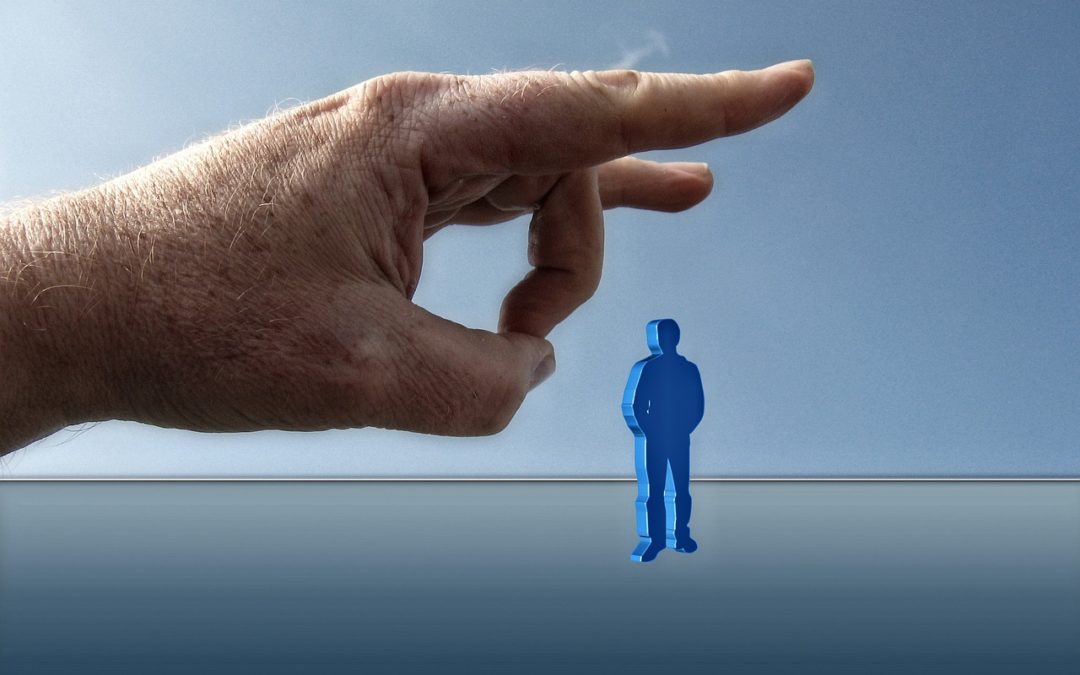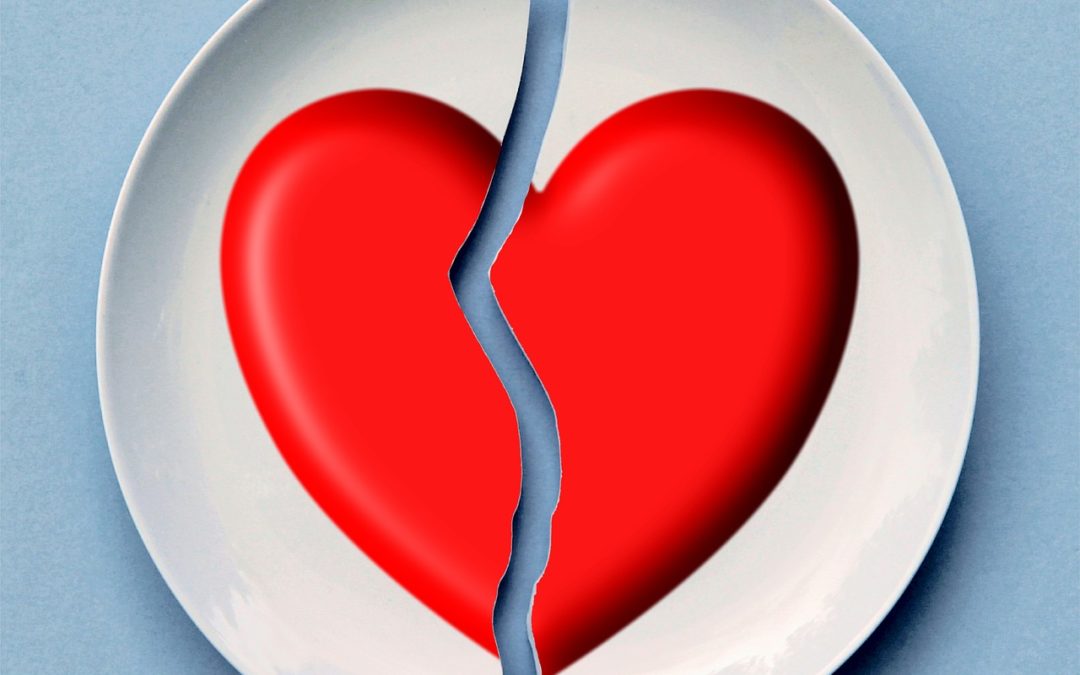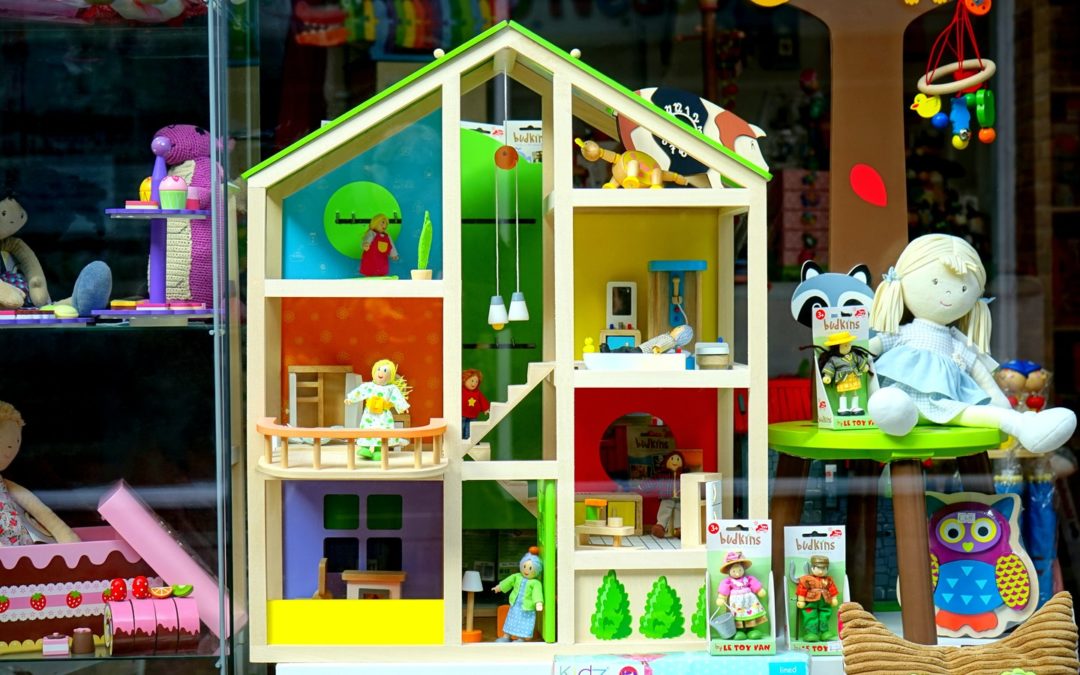
by admin | Dec 4, 2022 | Declutter
Clutter is not just about possessions in your house that you no longer use. People who are a negative influence in your life and on how you feel, these too need your focus in order to reduce the amount of time you spend with them.
Since I write about the energy in your home that is generated by objects, possessions and your art, it shouldn't come as a surprise that difficult or toxic people should be treated just like any other negative influence. Toxic people are thankfully a minority, but the strength of their effect upon is can be devastating.
In truth it is common for us to go through the letting go process of discarding items from our lives and to find ourselves thinking about some of the relationships that are similarly heavy, unpleasant or even painful. These need to be dealt with for the same reasons that old, damaged or ugly possessions need to be released from our lives. Difficult people also cause unhappiness, foster discontent or actually contribute to us being unhappy or unfulfilled.
A good and healthy friendship uplifts and supports us. In contrast to this a toxic person will bring poison into the relationship, causing fear, worry or concern. Feuds, fights and arguments are not the characteristics of friendship, but of a strained and difficult relationship that you don't need. There is no need for you to put up with such a person or to have them in your life. There can be moments in any friendship where there will be times of absence or events that prevent us from being together, but the general energy is of help, care and nurturing. Be clear with yourself about any 'friendship' that is less than this to you.
Be clear in asking yourself questions like these:
- What does a good friendship look like?
- What value does this person bring into my life?
- How do they contribute to our relationship?
- How do I feel when I am around them?
Letting go of a relationship or friendship that is not supporting you in being 'Your Best You' is something you need to do in order to live an optimal life, to reduce the distraction of your focus from what matters, but also to stop the drain of your energies. Saying it is one thing though, and actually doing it, making the separation is another thing completely!
See your good relationships as the benchmark.
Consider why these work, what is good about them, and why there is a natural lightness and ease to the way they are. Seeing the positive ones this way, with an intentional focus, allows you to compare them with the more difficult, awkward and difficult relationships. Look at the amount of your free time you are spending in these good and positive relationships, versus the time you allow to be lost in the ones which bring you no benefit or which actually cause you to feel pain or hurt.
Don't wait for "Sorry"
When a friend has caused you to feel upset, distressed or to feel ignored, don't be the person waiting for an apology. It may never come. Oftentimes the toxic person won't even be aware of the damage they have done to you with their selfish behaviour or sharp words. It seems to be the natural way of things that such people can have low levels of self-awareness. Let go of them and move forward.
Ask for help
In letting go of the bad ask for help from those friends who can appreciate and understand what you have been going through. You have to let them know what you have been struggling with in that other relationship, and the chances are quite high that they have been aware of the situation and waiting on the sidelines to be given permission to step in and help you make some changes.
Let yourself feel the sadness
Endings can be difficult and they can be sad. Allow yourself to mourn for the low quality relationship that is ending, if this is what you want to do. Close it down, and let it leave your life. Acknowledge that it did once work well and gave you something you might have needed or wanted at a different time when you were not the person you have since become.
Spend less time in that friendship
Decline an invite. Leave a gathering earlier than normal. Decline an invite. Just because your cell phone rings, do you have to answer it? Let their call go to voicemail. Perhaps reply the next day or not at all. Don't respond to a text message or a voicemail. Let it go. Be less available than you were before. Broaden the time gap of responding to their contact, until one day you don't reply at all.
Journal and reflect on the separation
A relationship is about what is shared between the two people. Can you select on what you received and gave in this friendship? Was there imbalance, humour, kindness, fun? The lessons you take from this can be used to help you move forward. Journal as you go through your recollection of the time with this person. Resolve to let go and move on. You have a good life to live.

by admin | Nov 20, 2022 | Declutter
In all that you have gone through and the unhappiness, anger and sadness you have felt, you have given a place to these feelings within yourself. Here is a simple method for loosening those attachments between your mind and body and moving to some resolution that supports the letting go.
Go to a quiet place where you can have half an hour to yourself and will not be disturbed as you go through this practice. You can lie on the floor so long as you are comfortable, or you can sit in a chair that supports you well. Have a notebook and pen nearby because once the physical exercise is done, you will likely find it helpful to make note of your thoughts and observations afterwards.
Start by closing your eyes and taking a cycle of ten steady breaths in and out, just to get yourself to a place where you can work through the process I am going to describe. Once you are feeling calm, think now about the thing you would like to release to let go of. Think about it, about how it makes you feel, and notice the emotions that come up as you focus upon this.
Take the strongest feeling you can identify and think about where you can find it in your body. All feelings will find a place in our body and create sensations that we are aware of. Perhaps you will feel heat, cold, stinging pain, dull pain, a throbbing sensation, tingling, or even cramp. From your objective self look at the sensation you are aware of. Notice how it is present and how you could describe it.
Now you are clear on the symptom and where it is showing up in your body, ask if there is a message attached to it. It could be a physical feeling or sensation. Perhaps it is a taste or a smell. Observe what is taking place without judging. Just let it be. It is what it is, nothing more. Be connected to the sensations that present to you.
Allow the process to continue until you feel that it is done or that you have received the message. Now it is time to repeat that cycle of breathing you did at the start, to relax and find a place of calm and peace. Move through this breathing and then allow yourself to sit up from the floor or to move gently up from your chair. Give yourself a good stretch of your body.
What did you notice and feel?
Pick up that notebook or journal and begin to write down what just happened. Write too about your feelings and thoughts of any message or point of release that came up for you in the process you have just taken yourself through. Pen or pencil will be best because you are committing straight to paper through your hand and body. Whatever comes out, just let it do so. Don't pause to edit or to take time out for analysis and judgement. Remember that it is what it is. There is no right or wrong, no crazy, silly or foolish. You are simply being lead to write what comes up and to faithfully record it in the moment. Get close to the whole thing. Keep your pen busy for as long as there is 'stuff' coming up to the surface for you. Stay with what presents itself through your pen to paper and keep writing until the connection to the feelings has gone.
- How might I see myself differently as a person?
- How can I use this experience to identify a new way forward in my life?
- What steps can I take to reduce the emotional pain of a similar future experience?
- Can I learn from this to let go of upset earlier?
- How might I retell the story I tell myself about what I went through?
Writing down the thoughts that surface will give you more steps to moving through your 'stuckness' around the letting go of that situation, scene or interaction with a person. Don't stop there with that first practical process. Do it again next week and then the week after. Any time you feel stuck or overwhelmed by the whole letting go process give yourself this private time to breathe, to notice the sensations in your body as they present themselves, and journal about the thoughts, ideas and emotions that come from the physical breathing exercise.
What has happened is just that, the past. You cannot change your past. You cannot remove what took place. However, you have the freedom and ability, as well as the means now, to look at the past with a new perspective and with a script that you can totally rewrite to take away guilt and any ill feeling over your actions or struggle. Remember this. It is what it is. Nothing more than this.
You can rewrite your story so that it serves you, rather than pulls you down. Remember this simple phrase, that "If it's to be, it's up to me."
When you note down your thoughts from the process, you will likely come up with new ideas for how you live moving forward, fresh approaches to how you enter into new activities and relationships.

by admin | Nov 6, 2022 | Declutter
Heartbreak, business failure, broken promises, or the ending of a friendship. Whenever one of these upsets touches you and you feel unhappiness, it is so very easy to get down, to become sad or to feel down.
It is what it is.
Your interpretation of an event is simply that, your own interpretation. You give meaning to everything. By default you can change that meaning or adapt how you see something by making the decision to do this. You have freewill and choice in the matter.
Here's the thing about accepting what is. You think you were wronged in a love affair or loving relationship that has ended. You think you were wronged this way because in your mind, you have told yourself that this really is what happened. Your mind conspires to create a story or to edit a drama in which you were made to be the victim in such a situation. It's your mind that does this so of course you must be right, therefore it must be true. I am taking some liberty and license with this in order to make the point. Please don't take this literally. I simply want to help you understand the concept that you can have a story about something in your mind, and if you want to, you can rewrite that story and take different meaning from it.
Accepting the idea that an experience is simply what it is, looking at it without judgement, is a powerful way for you to move forward from a place of hurt or upset and to recover the strength and magnificence of who you are. This approach doesn't mean you are giving something up or demeaning yourself at all in the process. But it does allow you to be free of those elements of self-judgement that can taint a scene from your past and add to it all type of negative meaning and often, with this, self-criticism. None of this is good for you.
Being aware is being mindful
Mindfulness is a way of approaching events, people and actions through the lens of non-judgement. In a book about decluttering, about letting go of the things which do not serve you, and the commitments and relationships that do not support you or make you strong or add value to your life, then adopting an approach of mindfulness will be of great help.
Each time you look at a conversation with someone that did not go the way you expected or at a relationship where you feel slighted, insulted or hurt, consider this. Might it be that the other person made those comments or took those actions without the same interpretation that you gave to those same words or actions? If you can see the sense in this or the possibility that this might indeed have been their completely different interpretation of the scene that played out, can you then see that there actually is no right or wrong? Can you see that your judgement and your perspective is just your judgement and perspective, nothing else?
By making a different story about what happened and how you or they reacted to what was said, can you find it easier to process the way you feel about the meaning you took from that event? Might it help you to explore this idea by applying it to some recent hurt or times of unhappiness?
Finding a way forward
In psychology and self-help books there is a very helpful phrase that comes from the super little book 'Love is Letting Go of Fear', written by Jerold Jampolski. I read this book years ago and always remember his assertion that 'there are only two emotions - Love and Fear.' At the time I thought that could not be right. What about happiness, excitement, humour, nostalgia? How about panic, terror, nervousness, awkwardness? But the more I thought about his statement, the easier it was to see that so many lesser emotions are simply symptoms of either fear or love and that he was right to say this.
Finding it difficult to let go of negative experiences and emotions is difficult because of all the fear that is contained within those same experiences. Put another way, if we were not so scared of what might come after we let go then we would let go so much faster and move forward. Look at this another way, we have a hard time letting go of our suffering because we feel safer hanging on to what is familiar, rather than stepping out into the unknown. Let this go. Get on with those aspects of your life that you love and represent who you are.

by admin | Oct 23, 2022 | Declutter
Why is it so difficult for us to move through the sadness and heartbreak of a failed relationship and start again? Why do we struggle so much with the ability to feel good about ourself after the thing we were once so excited by has died?
It is tough to move on from something that didn't go the way we expected it to. This could be a job move that went badly and we left the company or business. It might be a friendship that we thought was going in a certain direction but which was then ended when we were not expecting it to. The biggest heart break comes from when a loving relationship ends and we were unprepared for it. Even when we knew that perhaps, somewhere in our heart, it was not the right thing for us or was a relationship that in various ways may not have been equal and mutually supporting, we still look back on it and wish that it had not ended. Or that it had ended with us being in control. Perhaps that it had finished with a clear bang and not a weak whimper. In any of these scenarios we are still facing the issue of letting go and struggling to know how to do it better.
In our mind we are drawn in to the whole process of "What if ..." or "Perhaps I could have ..." All you are doing in these cases is replaying the drama and stoking the pain to greater levels than you need to.
Do you want to be right or do you want to be happy?
If you could let go of the sense that you were hard done by when the company let you go, or that you were taken advantage of by your partner in the relationship, or just that you would have liked to have taken more responsibility at the time in order that the failure of the relationship or the ending of the work had not happened to you, then surely you would feel better about yourself right now.
It wasn't your fault! You have been made to look wrong! In your head you want to try and re-edit the history that has already taken place. You put effort and energy into rewriting the script of what actually happened or of the times when you had the opportunity to speak up for yourself but did not. You want to be the person who was right about how things happened or about the decision that was reached, instead of feeling that you were pushed out or dumped or ignored. In all cases you feel the hurt of the outcome that you didn't expect or want to happen.
You can think of the person who did you the harm. You can forgive them for their mistakes against you. How about seeing the whole history re-written such that you are now the innocent one who was not responsible for what took place or for your actions at the time. It can all be airbrushed out of existence or the story retold. This is at least one of the survival methods that are running around in your head. If this is your plan for recovering from the upset and the sadness, then maybe you need to be open to finding a different approach!
It's a frequently used analogy, but while you are moping around, staying home, criticising things that happened, or feeling sad and angry about what you consider took place, the other person could be out there dancing. Not literally dancing, but living their life and dealing with what is. They could be getting on, moving forward and already have let go. We are different because we are not the same. This is why, for example, four people could live under the same roof at home and have completely different perspectives on what their home life was like as children when they look back on it as adults. Try this as an easy experiment. Connect with a couple of your former school friends and get their take on what it was like to be in the same class room as you for several years. Their perspective on the same school and the same room will be completely different to yours.
It is difficult for us to let go because you have to face elements of your own behaviour and your own past actions. If you had made the right decisions earlier then you wouldn't have ended up here in this painful place, right? Wrong! Stop there right now. All these things have already taken place. What happened has happened. You have no scope to have the past be different to the way it took place.
What are your options from here? You could let it all go and admit defeat. You were wrong and you let all these things happen. Someone else was right and you got it wrong. How does that responsibility feel? Fortunately, there is another way for you to approach all of this. You could simply accept what is, let things be the way they are. It can be this simple. You have choice over your thoughts and the freewill to let go and move on.

by admin | Oct 9, 2022 | Declutter
You chose the place where you live. It might be a house, an apartment, a cottage or a beach hut, a caravan or a mansion. The place you call home is a special place because you intentionally chose it. You chose to rent or buy or move to this place which you call your own space, the place you live and where you have stamped your style. How does living here make you feel?
The place you call home is connected with all the other spaces around you and the world you inhabit. It reflects you by the way you store things there and by what you bring into the home. As your habits and collections and accumulation changes, so too does the mood and energy of the home adapt to this. Your space is a being in the sense that it is a happening, adapting, changing place as a result of how you, your possessions and your guests, visitors and family members interact with it. Even if the items in the building do not change or swap around for months at a time and the general energy of the house is low, quiet and close to static, you are still moving in the space, the contents of the food cupboards are constantly changing, post is delivered, new items from shopping trips come into the space and other things are used, finished with and removed from the space. In this most basic way there is subtle change each and every day, even though at first glance we might not realise this.
Your home is alive and existing as energy. You are not separate from your home because it is a part of you. It is a reflection of how you think and feel, just as much as you develop by the way you personally interact with the space that is offered to you. The rooms of your home are a representation of how you think and feel, a reflection of your own energy.
Everything in life is composed of energy, of molecules and tiny atoms clustered together as different forms of 'stuff'. Wood and plastic are different materials, but each composed of a set of compressed atoms. Oak, pine, larch and sycamore are all wood types, albeit with a different composition. They each have their own form of energy and this is what you pick up on when you touch the different things in your home. Add to the physical makeup of each item, the emotional energy attached to every piece of furniture, glassware, DIY tool, or art work, books, clothing and bikes.
There is a glass bottle on my desk as I write. It is a recycled bottle that has existed in other forms before reaching the shop where I bought it and the sparkling water that was in it. There is energy within that static glass structure that I have no control over. It has another energy because I know practically that I will be adding it to recycling bin so it can take on another form once crushed, heated and remade into another glass item.
Also on my desk is a tray with some coins, a watch and some keys. Each item is imbued with a different energy. The coins have been in the hands of thousands of people before me. Each has a different date of minting or issue and gives an insight into the potential places they have been used or the times they have been a part of. They have been previously used to buy petrol, scratch cards, lottery tickets, a sandwich, a book, to pay a debt, to buy food, for a bus ticket or a parking token. Every transaction brought energy with it.
The watch was a fabulous gift on the first Christmas with my partner. She gave it to me with love and made a huge effort to buy it for me. Seeing it after I removed the wrapping paper and opened the box was the most enormous pleasure. It carries those thoughts each time I wear it proudly.
The keys represent the front doors of houses that I rent out, each house more than a hundred years old. Some of the houses have been easy for us to improve and repair and rent. Others have been difficult and challenging. Each positive experience, or troublesome event is connected to the key for that front door. With each key are my recollections of the many tenants who have lived in them over time and the relationship or friendship we have enjoyed. You can see now, everything in your home has energy in one form or several.
Become connected to the energy of your home and to the play of such energies as exist between the rooms and the items you have around you. If something does not give you positive energy you can remove it from the house and let it go. If a room in your house feels stagnant and heavy, the likelihood is that it needs a clean and a refresh for it to become a different space for you. Play with variables like decoration, pictures, rugs, art work and the furniture you use. Be aware of how you feel when you change or move around the things in a room and work to get the feeling right for you.

by admin | Sep 25, 2022 | Declutter
When you raise your energy people will always notice. If you want to create greater speed in the way changes happen in your life clean out your whole house or apartment. If you want to see more nice things come into your home energy, take the time to identify the possessions that don't work for you, which don't bring you peace or happiness or joy and let them go elsewhere.
They might go to the local waste or garbage site for recycling, they may go to the goodwill to create some positive for a charity wanting to raise funds and reach the new owner with ease. If you seek to create change this can happen best when you let go of what is already forming clutter and representing stagnant energy for you.
Start at the front door of your home. How does the door look? What messages does it give out? How does it welcome you to the space behind? Could it do with a fresh coat of paint? Is there some rust at a hinge or a handle? Now step through the door and into the first space. This might be a hallway with other doors coming off it, perhaps a corridor, or you could be straight into your living room. Perhaps your front door could actually be the entry straight into your kitchen. Stand where you are for fully five minutes.
I want you to notice your feelings as you stand here and look at each wall of the room, every piece of furniture, poster or picture or postcard hanging on the wall, at the hall stand or coffee table or sofas. Look at each item and think with your heart about that piece.
- Do you like it?
- Do you love it?
- What memories are associated with it?
- How do you feel when you think about the mental pictures and associations you have with that?
This exercise is the first of several for I want to ask you to stand at the doorway to each room in your home and repeat it. A couple of rooms each day is enough because the whole process of looking at each space in your house and considering your thoughts and feeling for each space can be exhausting. Be gentle with yourself as you do this.
You know already that you will be doing this for the whole of your home. It will not be possible for you to complete this exercise and remain neutral or unaffected by what you observe and your feelings as you move around the space. Many things which you have never noticed will jump in front of you to be seen. A lot of materials and textures will become more apparent to you. Sure, you have seen the item thousands of times, but now you will see it in context with what it is placed next to or under or above and you will have a reaction to this placement for the first time.
It's all quite natural, for we are so busy in our lives that we can pass by something and not see it for what it really is. We can be absorbed by our activities and not be still enough in our home to be with the things we have brought in to the space.
Taking fully five minutes in each room to observe and notice what is there and how it all interconnects, this will be a helpful exercise in noticing clearly what is in your life. Make your notes and record your observations about each area. Notice how what you write captures or describes the feelings you have in each room.
- Which area of the home do you feel most drawn to?
- Where is the emotional heart of the building?
- Which part of the house do you gravitate towards when you feel unwell because in this space you feel cosy, safe and cared for?
If there is a part of the home where you feel low energy, where is it, and what makes you feel heavy or sad when there?
Is it the space or is it an item of furniture or perhaps something displayed on a shelf?
Are there pictures on the walls of your home that you don't like, but have never let go of? Can you understand the emotions that are triggered or blocked when you consider these images?
When you are following a hobby at home, where do you notice yourself sitting?
Consider the play of light and shadow of the home and look at how this affects your personal moods and energy levels across the day and in different seasons of the year. Are your rooms organised and laid out for you to get maximum benefit from morning sunshine and afternoon or early evening sunlight?
If you moved a couple of rooms around to take full advantage of the natural warmth and energy from daylight and sunshine, which rooms would be swapped about for your own well being?





